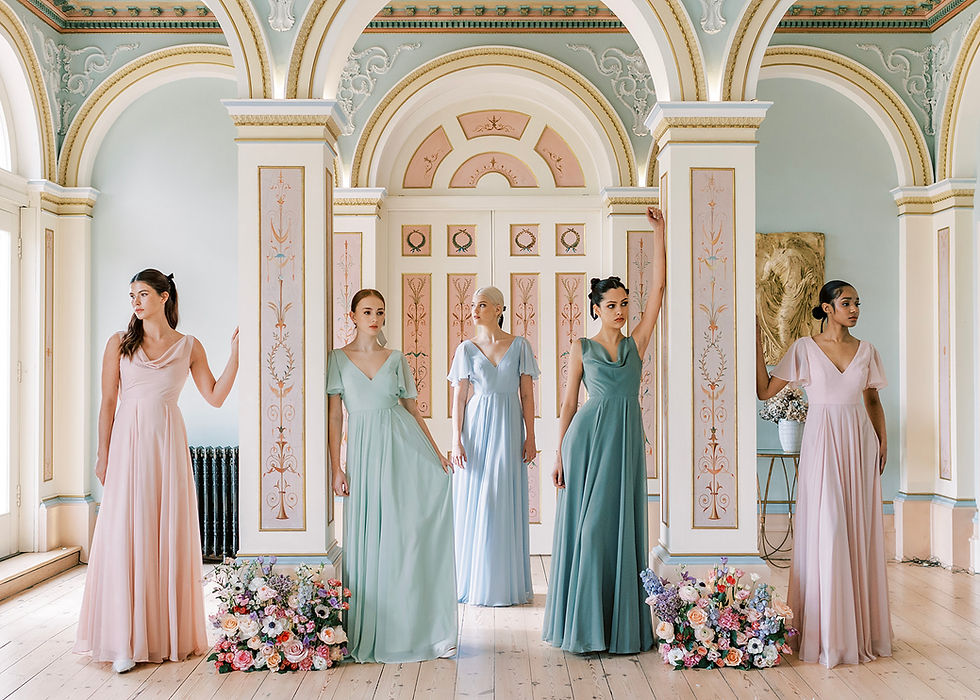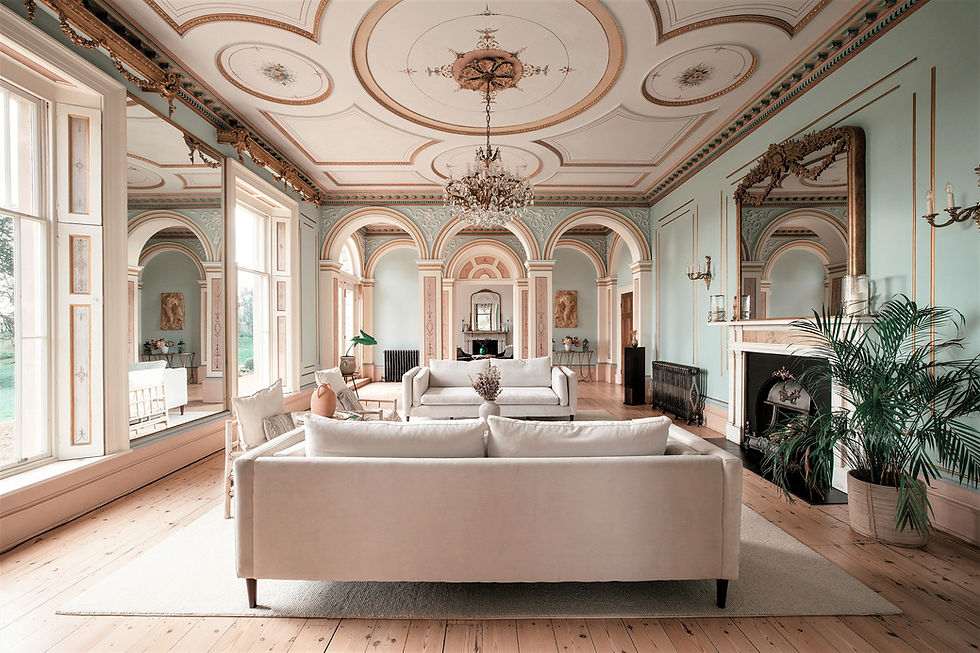Film & TV Equipment Checklist for On-Location Shoots in Historic Buildings in UK
- Aug 1, 2025
- 3 min read
Updated: Aug 8, 2025
Filming on location in a historic property is a dream for many creatives, but it comes with very real responsibilities. Unlike studio shoots or modern homes, heritage buildings can’t be reset or repaired with a coat of paint. The textures, finishes, and architectural features that give your production depth are also fragile and irreplaceable.
Here is a practical and experience-based checklist designed to help production teams protect historic sites, follow best practices, and avoid unnecessary delays or damage on set.

1. Protective Equipment for Filming in Historic Locations in UK
Start here. Before you even think about lenses or lighting, you’ll need to plan how your crew and gear interact with the building itself.
Must-haves:
Heavy-duty floor protection (rubber mats or neoprene runners)
Foam corner guards for doors, staircases, and period features
Furniture covers for any usable antique pieces
Boot covers or soft-soled shoes for interior access areas
Temporary signage to control movement through sensitive zones
It's always easier to prevent damage than to explain it later.

2. Lighting for Shooting in Period Interiors
Historic interiors often have limited lighting and delicate finishes. Avoiding heat, spills, and unnecessary wear is key.
Suggested approach:
Use cool-running LED panels instead of tungsten units
Always clamp to stands, never walls or trim
Bring black wrap, flags, and diffusion to manage spill in tight rooms
Double-check circuit loads before powering multiple lights in one area
For daylight sim, portable bicolor fixtures help match changing natural light
Avoid lighting setups that create heat build-up or require drilling into ceilings or beams.

3. Cabling & Power Safety for Shoots in UK Heritage Spaces
Cables are one of the most common causes of trips, damage, and delays. Keep your setup compliant and safe:
Use rubber cable matting or securely gaffed tape paths
Avoid laying cables across staircases or access points
Use battery-powered gear wherever possible to reduce cable loads
Plan your cable routes in advance with the site manager
If using a generator, position it well away from doors and windows
Some venues offer access to external power, ask early and verify electrical limits.

4. Camera Support Gear for Delicate Floors and Tight Spaces
Historic properties weren’t built with dolly tracks or gimbals in mind, but you can still capture stunning shots with the right planning.
Recommended gear:
Rubber-wheeled dollies or padded sliders
Shoulder rigs or handheld stabilisers for rooms with uneven flooring
Tripod floor protectors to avoid scuffing wood or tiles
Lightweight jibs only with risk assessments and venue approval
For high ceilings or wide hallway shots, keep movement smooth but light, heavy rigs may cause long-term floor stress.

5. Insurance and Risk Assessments
Most period venues require proof of insurance and a risk assessment before filming begins.
Make sure to:
Provide Public Liability Insurance (usually £5M minimum cover)
Include specifics like fire risk, cable management, and crew movement
Outline plans for waste disposal, overnight gear storage, and vehicle access
Appoint a trained Health & Safety lead on set
Risk assessments should be living documents, update them if shoot plans change on the day.

6. Crew Essentials for Filming in Period Buildings
The small stuff makes a big difference. A smooth shoot in a historic space depends on how prepared your crew is.
Checklist:
Indoor footwear or shoe covers for all interior-access crew
Portable LED torches for low-light stairwells or attics
Walkie-talkies set to low volume to reduce disturbance
A printed site map with restricted areas marked
Portable bins and clear recycling instructions for catering teams
And yes, always bring extra gaffer tape.

Book a Film-Friendly Historic Location in the West Midlands
If your next shoot calls for authentic period architecture, natural light, and a location that understands production needs, The Location House offers exactly that.
Our 19th-century country house in the West Midlands has hosted productions for BBC, Channel 4, Hello Magazine, and global fashion brands. We offer exclusive hire, flexible booking packages, and support for productions of all sizes, from short-form content to feature-length projects.
Ready to lock in your next shoot location? Contact us to request our location pack, check availability, or book a recce.



Comments